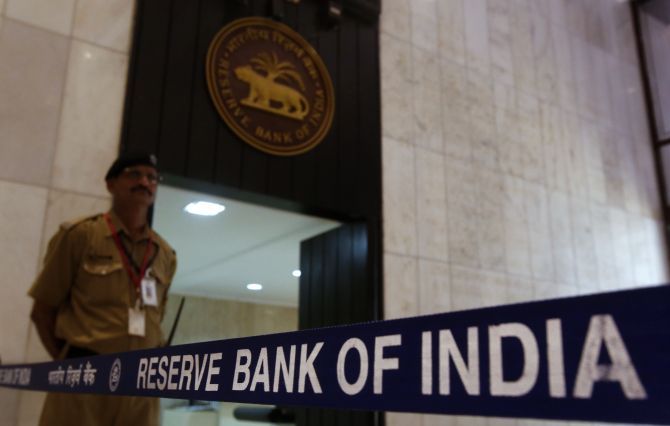The SBI report ruled out a October rate hike

The Reserve Bank of India's (RBI) decision to raise the repo rate by 25 basis points (bps) to 6.50 per cent is a "win-win" situation for both markets and the banks as inflation is expected to rapidly decelerate to sub-5 per cent in coming months, suggests the report from the Economic Research Department of State Bank of India (SBI).
The report has been authored by Dr Soumya Kanti Ghosh, group chief economic adviser, SBI.
"The Monetary Policy Committee (MPC) decided to increase repo rate by 25 bps (for the second time in a row) to 6.50 per cent by 5-1 vote and kept the stance neutral.
"RBI had to choose the timing of rate hike between now and later in the October 2018 policy.
"However, RBI decided to walk the talk and the rate hike is a win-win situation for both markets and the banks as inflation is expected to rapidly decelerate to sub-5 per cent in coming months and it would have been difficult for RBI to hike then and convince the markets," the SBI report suggested.
It further stated that "private agencies now forecast weak rainfall in August and even September".
"If this is true, this will be fourth year of less than normal rainfall, and thereby growth considerations might play center stage going forward.
"We rule out a October rate hike and are still holding to no further rate hikes in FY19. Our projections for CPI FY19 is at 4.6 per cent and for FY20 is 4.5 per cent," the report stated.
The six member Monetary Policy Committee (MPC) on Wednesday said that its decision is consistent with the neutral stance of monetary policy in consonance with the objective of achieving the medium-term target for consumer price index (CPI) inflation of four per cent.
The MPC added that the volatility in global financial markets continues to impart uncertainty to the inflation outlook.
Highlighting the inflation, the MPC projected 4.6 per cent in Q2FY19, 4.8 per cent in H2 of FY19 and 5 per cent in Q1FY20.
The MPC also said that in case there is a fiscal slippage at the centre or state level, it could have adverse implications for market volatility, crowd out private investment and impact the outlook for inflation.
In the last policy, the RBI has projected the real Gross Domestic Product (GDP) growth in FY19 is seen at 7.4 per cent as against 6.6 per cent in FY18.
The apex bank said that the models suggests FY20 real GDP growth will range from 7.4 per cent to 7.9 per cent.
Photograph: Reuters











 © 2025
© 2025